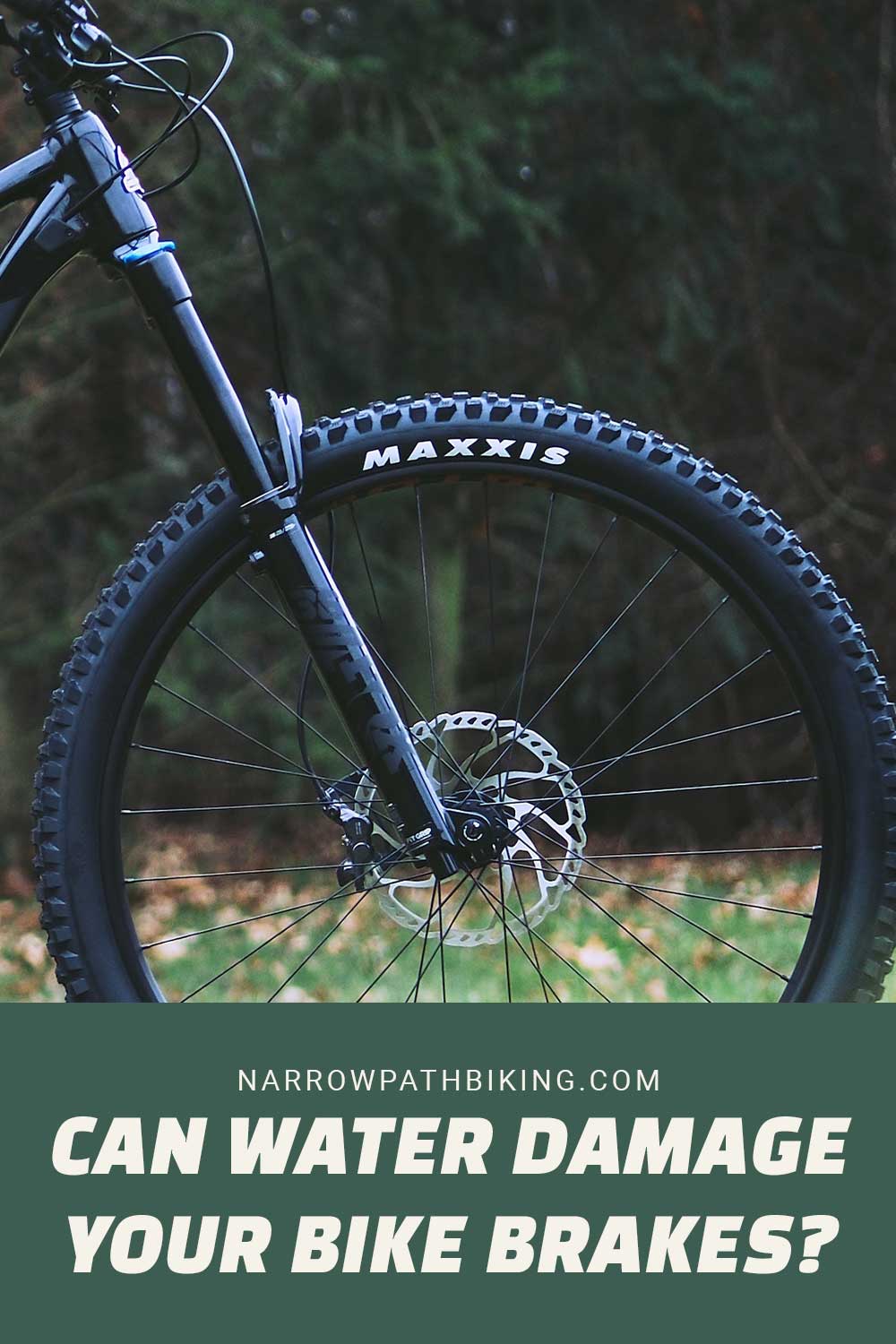Regarding bikes, BMX, and roads, most of the water the bi-pedal vehicles are exposed to is contaminated with soils and other materials that could damage the brakes at a micro level.
In addition, the rubber stoppers can have dirt built up on them, which could scratch the wheel well and even damage the squeeze mechanisms.
The most frequent damage water causes will be rusting on the brake lines and metal components designated to the braking systems.
Therefore it is important to keep your equipment clean. Any dirt, grim build-up, or standing water can slowly decay the bike’s frame if not taken care of.
How Should You Maintain Bike Brakes?
As briefly mentioned above, there will be an easy way to keep your chains and brake lines rust-free by washing your bike and storing it in a safe and dry space.
A little TLC, even ‘spoiling’ your bicycle mentality, will help you ride in the best shape possible for an extended duration.
Most BMX professionals make it a point to clean their rides after returning home, which is as easy as taking a garden hose to it and taking the dirt off the frame. Take a towel and remove any water clinging to the frame as an extra step.
How Can You Tell If Your Brakes are Damaged?
There are going to be checks that will identify when a bike brake system has been damaged. The first check is before leaving for the day’s ride and ensuring everything is in working order.
Running a hand over the components can teach the body touch memory, which translates into knowing when something is cracked or worn down.
There are going to be situations in which a person will be riding and feel a difference when braking. This can be due to water on the brakes causing slippage or alignment issues, but this is a situation to be careful with.
How Can You Fix Brakes if They’re Damaged?
Now that you have found there is damage to the brake system, there will be a few options to consider: replace the whole system or just the brake pads. The thing about rubber pads is that they break down quickly, peeling layers off with each slow down and stop.
Fixing the pads will require some handyman skills, using an Allen wrench to remove the brake pads and rescuing the new pads in place.
Replacing the entire system will require a more advanced set of tools, and it is recommended to have this done with professional or expert help.
Which Part of Bike Brakes is Ruined by Water?
There are going to be a few different effects water will have on the braking system of any bicycle, starting with making the pad slick and unable to grip the wheel well.
This is the most common issue with water and the brakes, but there will be a need to check the brake lines.
The wire mesh that is corded and runs through the frame is vulnerable to rusting and can break if tension is applied to a weakened link. This can cause a run-away bike situation, resulting in injury or worse.
When is the Time to Change your Bike Brakes?
There are going to be some professionals that replace their brakes annually or more frequently throughout the season, depending on the number of events and intensity of those competitions.
This is the most intense case for BMX riding, and there will be less need to change the brakes for non-professional riders.
For the most casual rider, just be sure to keep up with the maintenance of your bike, and you will know when the time is to change the brakes. As a parent, be sure to keep those pads up to par. Changing the brake pads is relatively easy.
Final Thoughts on Can Water Damage Your Bike Brakes
Basic maintenance is needed for any vehicle, including the human body, and when it comes to bicycles, there will be very simple ways to keep the ride at its best.
There will be a few systems to worry about when checking over these bi-pedal machines, and the most important will be the wheel and tire pressures and, right behind that, brake systems.
The most basic checks can help a rider ensure their safety and the safety of anyone borrowing their bikes. This includes checking the brake pads, the handle brake levers, and the integrity of the metals used for the brake line systems.

